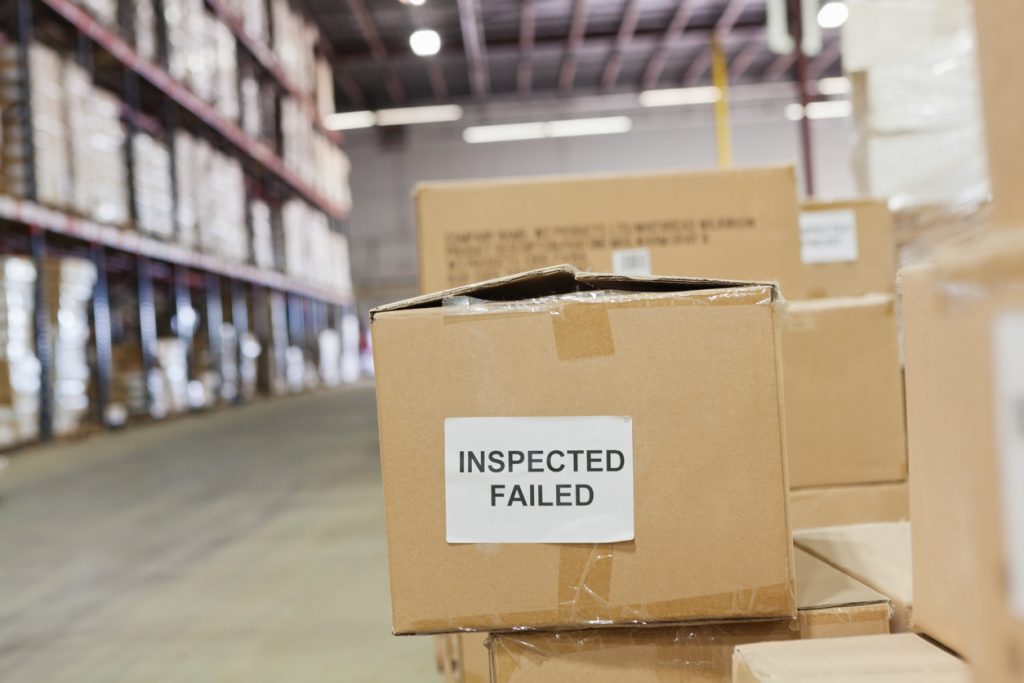Consumer Products Whistleblower
What laws protect consumer products safety whistleblowers?
The consumer products industry is sprawling and countless employees play a pivotal role in making sure products —ranging from toys to coffee makers to power tools — do not pose a threat to people using them. A relatively unsung law, the Consumer Products Safety Improvement Act (CPSIA), 15 U.S.C. § 2087, provides crucial protection against retaliation for whistleblowers. Talk with a consumer products whistleblower lawyer to determine your legal options.
The CPSIA mandates that consumer product companies cannot retaliate against employees who report concerns about safety issues and other potential violations of the Consumer Product Safety Act (CPSA).
What legal standard applies?
The CPSIA, which amended the CPSA to provide protection from retaliation for whistleblowers, provides in relevant part that:
(a) No manufacturer, private labeler, distributor, or retailer, may discharge an employee or otherwise discriminate against an employee with respect to compensation, terms, conditions, or privileges of employment because the employee, whether at the employee’s initiative or in the ordinary course of employee’s duties . . .—
(1) provided, caused to be provided, or is about to provide or cause to be provided to the employer, the Federal Government, or the attorney general of a State information relating to any violation of, or any act or omission the employee reasonably believes to be a violation of any provision of this chapter or any other Act enforced by the Commission, or any order, rule, regulation, standard, or ban under any such Acts [. . . .]
(4) objected to, or refused to, participate in any activity, policy, practice, or assigned task that the employee (or other such person) reasonably believed to be in violation of any provision of this chapter or any other Act enforced by the Commission, or any order, rule, regulation, standard, or ban under such Acts
15 U.S.C. § 2087 (alterations added).
How do I prove consumer products safety whistleblower retaliation?
The CPSIA whistleblower statute sets forth the same elements of a retaliation claim as other whistleblower statutes: (1) protected activity; (2) unlawful discrimination; and (3) a causal link between the protected activity and the unlawful discrimination. 15 U.S.C.A. § 2087(b)(2)(B)(i)-(iv); 29 C.F.R. § 1983.109(a).”
Precedent related to other whistleblower statutes, including the anti-retaliation provisions of the Sarbanes-Oxley Act, are thus applicable to CPSIA claims.
Put simply, this means that an employee must show only that their whistleblowing activity was a “contributing factor” in the company’s decision to retaliate against them. If this is proven, then the company will be liable for retaliation unless it can show by “clear and convincing” evidence that it would have taken the same action against the employee absent their protected disclosures.
What types of products does the CPSIA cover?
The term “consumer products” means “any article, or component part thereof, produced or distributed
(i) for sale to a consumer for use in or around a permanent or temporary household or residence, a school, in recreation, or otherwise, or
(ii) for the personal use, consumption or enjoyment of a consumer in or around a permanent or temporary household or residence, a school, in recreation, or otherwise;”
This definition includes items like kitchen/cooking products, electronics such as phone chargers, a vast array of children’s toys, and home furnishings.
However, a number of exceptions exist to the definition of “consumer product” including tobacco, motor vehicles, and aircraft, which are regulated by other laws. 15 U.S.C. § 2052(a)(5).
What is the deadline to file a CPSIA whistleblower retaliation complaint?
A whistleblower who has been retaliated against must file a complaint with the Department of Labor within 180 days of when the retaliation occurred. 15 U.S.C. § 2087(b)(1).
What remedies are available for corporate whistleblower retaliation?
If an employee proves that their whistleblowing was a “contributing factor” in the company’s decision to retaliate against them, and the company does not prove by “clear and convincing” evidence it would have taken the same action absent the protected disclosures, then the employee can be awarded:
- reinstatement to their job (if they have been discharged);
- back pay (lost earnings), with interest;
- compensatory damages, including for emotional distress; and
- attorneys’ fees.
15 U.S.C. § 2087(b)(4)(A-C). Talk with an experienced consumer products whistleblower lawyer to learn more about how to maximize potential damages.
Can I litigate my CPSIA claims in federal court?
Yes, after the Department of Labor has had an opportunity to first investigate your claim. You must first give the Department of Labor at least 210 days after you filed your complaint to investigate and render a decision on your case. If the Department of Labor has not issued a final decision within 210 days, then you may file a case in federal district court for a jury trial. 15 U.S.C. § 2087(b)(4). Alternatively, if the Department of Labor issues its final decision and you disagree with the determination, you can file a case in federal court within 90 days of receiving the final decision. Id. The federal court case will be governed by the same legal burdens described above. An experienced consumer products whistleblower lawyer can help you more fully understand the legal process.
Related articles and interviews by Bachman Law
Bachman Law routinely represents employees in consumer products whistleblower retaliation cases. Likewise, Bachman law frequently writes, and is quoted about, whistleblower retaliation by various media outlets, including:
- 5 indispensable things consumer products whistleblowers need to know
- PBS Newshour interviews Eric Bachman about legal strategy in whistleblower retaliation cases
- Law360 interviews Eric Bachman about legal standards in whistleblower retaliation cases
- What counts as an “adverse action” in whistleblower retaliation cases?
- Summary judgment explained: a critical juncture in whistleblower retaliation cases
For more information, see our Frequently Asked Questions (FAQs) page that answers many common questions in plain English.
If you have experienced workplace discrimination or whistleblower retaliation, call us at (202) 769-1681, or start your preliminary consultation online.

View all of our Frequently Asked Questions
Latest From The Glass Ceiling Discrimination Blog

Proving workplace harassment: the key rule that lets you use years of evidence
Workplace harassment and hostile work environment claims—especially sexual harassment and racial harassment—can be tough to prove. They become even harder when serious incidents happened more

Discovery 101: What to expect in your employment discrimination or retaliation case
You’ve filed a discrimination or harassment lawsuit—now what? The next phase, discovery, is where the real battle begins. It’s often the most time-consuming part of

Hidden risks in executive severance/settlement agreements: read before you sign
Leaving a job is a major transition. Sometimes it’s planned, sometimes it’s sudden, and sometimes it follows a conflict—like a discrimination or retaliation complaint. Whatever